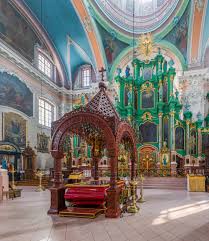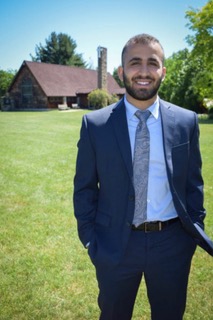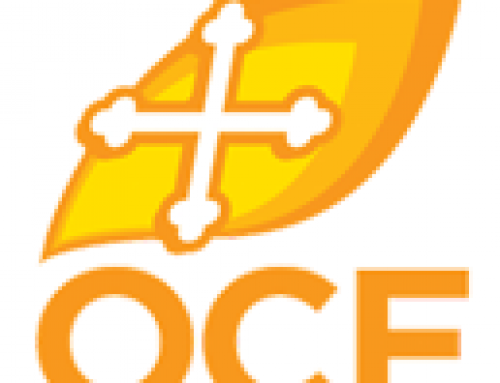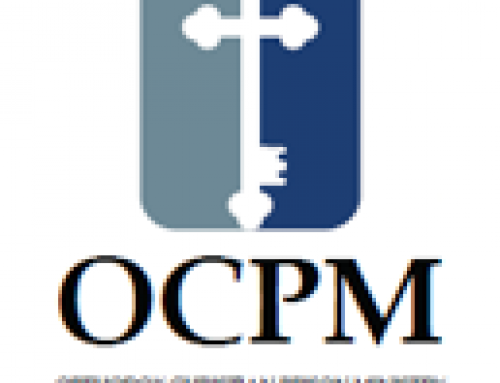This post was originally published on this site
Community is at the very core of the Christian life. The early Church had a saying, “unus Christianus, nullus Christianus.” One Christian, no Christian. The very fabric of our faith is experienced in community. We gather to celebrate the Liturgy, marriage, baptism, and so on. We gather to mourn the dead and to bear one another’s burdens. All in community. These are things we do as God’s community, the body of Christ.

Photo by Lestat (Jan Mehlich via Wikimedia Commons
The word “Church” is translated from the New Testament Greek word ekklesia, which means an assembly or a gathering of people. This is important for us to understand. Although colloquially we use the word “Church” to reference the building where we gather, this is technically a misnomer. Father Thomas Hopko (of blessed memory) suggested that a more proper way to speak would be to say, “we are gathering as the Church” rather than, “we are going to the Church”. The Church is first and foremost, a gathering of the people of God.
This is not to discount the Church building. There is an incredibly rich and important tradition surrounding the architecture and beautiful adornments of the building where we gather. However, the Church is more than just a collection of real estate. The Church is the transcendent reality of the Body of Christ gathered together, in communion.
This community is essential to the Christian life.
While the Church is much more than a social club, the social aspect of the Church is not to be discounted. We do not finish the Liturgy and go home immediately, we share in coffee or a meal. This is why there is such a strong emphasis on the various ministries of the Orthodox church that nurture fellowship. These programs strengthen the communities in which we worship.
While we are in college, Orthodox Christian Fellowship is one of the best ways we encounter the fellowship of the Orthodox Church. Through OCF, students are invited to engage the Church in a way that speaks directly to their needs as young adults. Chapters all over the country are visited by faithful and honorable priests who take time out of their schedules to minister to students as a subset of the church population with its own specific spiritual needs.
Also, as many students are living away from their home parishes, it’s a wonderful avenue to establish a spiritual support system in your new home.
If community is essential to the Christian life, and OCF is the Orthodox community on your college campus, and one plus one equals two, then we can reasonably say that OCF is an essential part of our college experience.
The spiritual life of the Church is work. Repentance is work. There is work appointed for us, and it is vital that we set out to do this work in community. We read in Ecclesiastes 4:9 that “two are better than one; because they have a good reward for their labor.” When we work together, we share in a greater reward.
Only a fool would set out on the journey to the Kingdom of God alone.
We must make use of every tool at our disposal. We need to gird ourselves with the strength of our Orthodox communities. It is imperative that we surround ourselves with the power of the Church, and engage it in every way we can.
While we are in college, OCF is a great way to do just that.
 Mark Ghannam is a Junior at the University of Michigan Ann Arbor pursing a degree in economics, and serves as the Vice-President and Head of Clergy Relations for his OCF chapter. In his free time, Mark enjoys reading, rock climbing, and long walks on the beach while discussing Liturgical theology.
Mark Ghannam is a Junior at the University of Michigan Ann Arbor pursing a degree in economics, and serves as the Vice-President and Head of Clergy Relations for his OCF chapter. In his free time, Mark enjoys reading, rock climbing, and long walks on the beach while discussing Liturgical theology.




